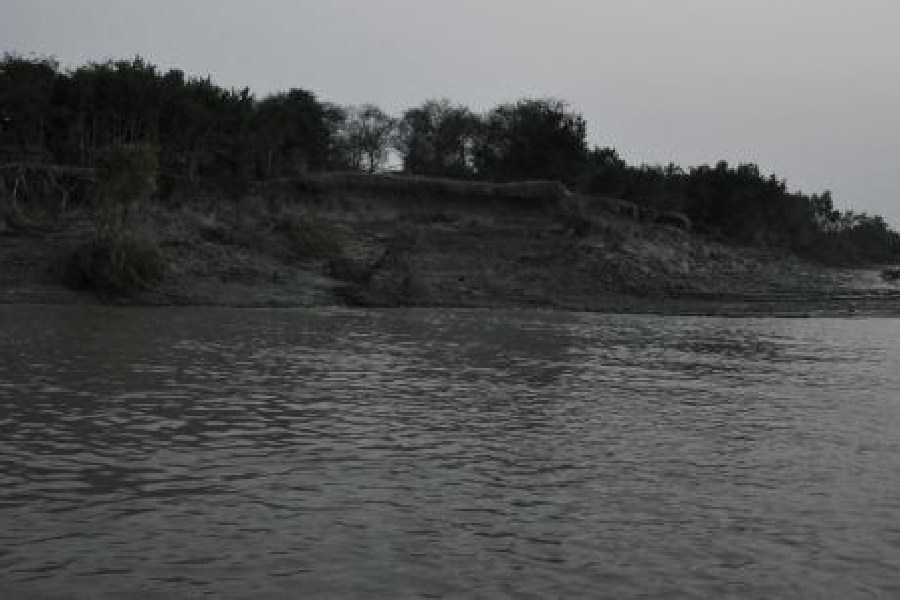Nearly 650km of creeks in the Sunderbans have been desilted in the past six years as part of an effort to increase the reserve of freshwater around the villages that are reeling under the impact of increased soil salinity, the secretary in the Bengal government’s irrigation department said on Friday.
Rise in salinity is one of the biggest factors impacting the livelihood of residents of the Sunderbans and triggers mass migration to cities and other rural areas.
It has ruined acres of agricultural fields. Fields where crops were cultivated even a few years ago are now barren.
Irrigation secretary Prabhat Kumar Mishra said they were trying to prevent saltwater intrusion and increase freshwater reserves.
“Salinity has a great impact on the livelihood of people. Repeated cyclones have led to the intrusion of saline water into the land. It takes several years for the saline water to leach out completely,” said Mishra.
“Since 2016, we have been desilting creeks in the Sunderbans. These are standalone creeks without links to the sea. We have installed sluice gates where the creeks have links with the sea to stop the entry of saline water,” Mishra said at a summit on challenges faced by deltas, organised by the South Asian Institute for Advanced Research and Development.
“We have desilted nearly 650km of creeks,” he said.
Silt deposition over the years has made the creeks shallow in many places. In some places, creeks were completely filled with silt. Villagers had started paddy cultivation over what was a creek many years ago.
“We have desilted the creeks across 19 blocks in North 24-Parganas and South 24-Parganas,” Mishra later told Metro.
Mishra said the idea behind desilting the creeks was to increase freshwater storage. When it would rain, the newly desilted creeks would store the rainwater that can then be used to irritate fields. The government is also promoting the cultivation of scampi or giant prawns in these creeks.
Villagers in the Sunderbans have been digging ponds to store rainwater but land has become so precious that it is not possible to keep digging ponds.
There is nearly a 3,000km-long embankment in the Sunderbans and much of it has been in poor condition. During cyclones and high tide, the saline water breaches the embankments and enters land. Once the water gets into the homestead and agricultural land, it becomes difficult to cultivate the land for years.
Sumana Banerjee, project manager of Living Deltas, a research project across deltas in India, Bangladesh and Vietnam, said that besides the cyclone-induced saltwater intrusion, seepage through mud embankments and groundwater seepage were also turning the fields unfit for cultivation.
Mishra spoke about how the cultivation of vannamei shrimp - which he said grows fast - was luring villagers into destroying the mangroves. These shrimps grow in salt water and are not indigenous.
“Which is why we are promoting the cultivation of freshwater scampi,” he said.
